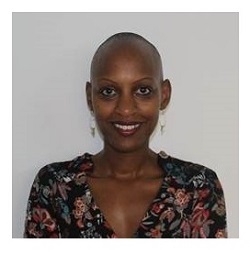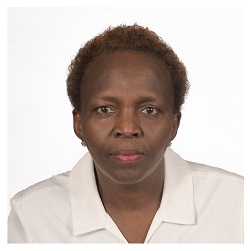Mar 26, 2019 | by The SEEP Network
A recent state of practice report identifies 74 government initiatives related to Savings Groups (SGs) across 20 countries in Sub-Saharan Africa. The interventions of national governments in the sector are wide-ranging and include public policies, strategies, regulation and programming related to financial inclusion, social protection, women’s empowerment and sector coordination.
The effective engagement of national governments provides stakeholders – including funders, civil society organizations and financial service providers – opportunities to expand the scale, sustainability and impact of Savings Groups, as well as to leverage Savings Groups for broader development objectives.
This webinar provided an overview of government policies and programming in the sector across Africa, including key trends, followed by a discussion with Josephine Muriuki (Government of Kenya) and Dr. Monique Nsanzabaganwa (National Bank of Rwanda) on government policies, priorities and partnerships related to Savings Groups in Kenya and Rwanda.
 Fiona Jarden, Royal Tropical Institute
Fiona Jarden, Royal Tropical Institute
Fiona is the Senior Financial Inclusion Policy Advisor with the Royal Tropical Institute (KIT), where she works with European development finance institutions and commercial banks in sub-Saharan Africa to expand women’s financial inclusion. She was previously CARE International’s global lead for financial inclusion policy and advocacy, working closely with CARE country teams and partner financial service providers, agri-businesses and national governments across 46 countries, based on the experience of CARE’s global Savings Groups program. Fiona holds a Master’s degree in international development and a Postgraduate Diploma in journalism, and she is co-author of the recent state of practice report on Savings Groups and the Role of Government in Sub-Saharan Africa.
 Aisha Rahamatali, CARE International
Aisha Rahamatali, CARE International
As CARE International Regional Advocacy Coordinator in West Africa, Aisha supports the implementation of Women on the Move, a regional initiative focused on the economic, social and political empowerment of women through their participation in Saving Groups, with a key component being scale up through partnerships and advocacy with governments. Aisha works closely with CARE Country Offices and other stakeholders to advance the adoption and implementation of SGs by governments in the region through financial inclusion, gender and social protection policies. She also co-authored the recent state of practice report on Savings Groups and the Role of Government in Sub-Saharan Africa. Previously, Aisha worked as a child rights and women’s rights advocate with several NGOs and the UN Special Rapporteur on Violence against Women.
 Josephine Muriuki, State Department for Social Protection, Pensions and Senior Citizen Affairs, Government of Kenya
Josephine Muriuki, State Department for Social Protection, Pensions and Senior Citizen Affairs, Government of Kenya
Josephine leads the development of the Government of Kenya’s policies and programming related to social protection and social development - including community development, capacity building and registration of Savings Groups - provision of rehabilitation and vocational training for persons with disabilities, promotion and protection of the family, and the provision of psychosocial support and referral services. Ms. Muriuki holds a Masters Degree in Counseling Psychology and a Bachelors Degree in Political Science and Sociology from the University of Nairobi. A registered Community Development Practitioner, she has over 30 years of experience and is an active advocate of disability inclusion and gender equality.
 Dr. Monique Nsanzabaganwa, National Bank of Rwanda
Dr. Monique Nsanzabaganwa, National Bank of Rwanda
Dr. Monique Nsanzabaganwa is the Deputy Governor of the National Bank of Rwanda since 2011. Previously, she served as Minister of Trade and Industry (2008-2011) and Minister of State in charge of Economic Planning in the Ministry of Finance and Economic Planning (2003-2008). Dr. Nsanzabaganwa has more than 15 years of experience designing and implementing transformational policies in Rwanda related to financial inclusion, and she is a passionate advocate for women’s economic empowerment and financial inclusion both in Rwanda and internationally.
This webinar was hosted by The SEEP Network, in collaboration with CARE International and FSD Africa.
Categories: Savings Groups Webinar Savings Groups Webinar WebinarsBlogs

1621 North Kent Street, Ste 900,
Arlington, VA, 22209
P 202.534.1400
F 703.276.1433
Website Photos: © mari matsuri
